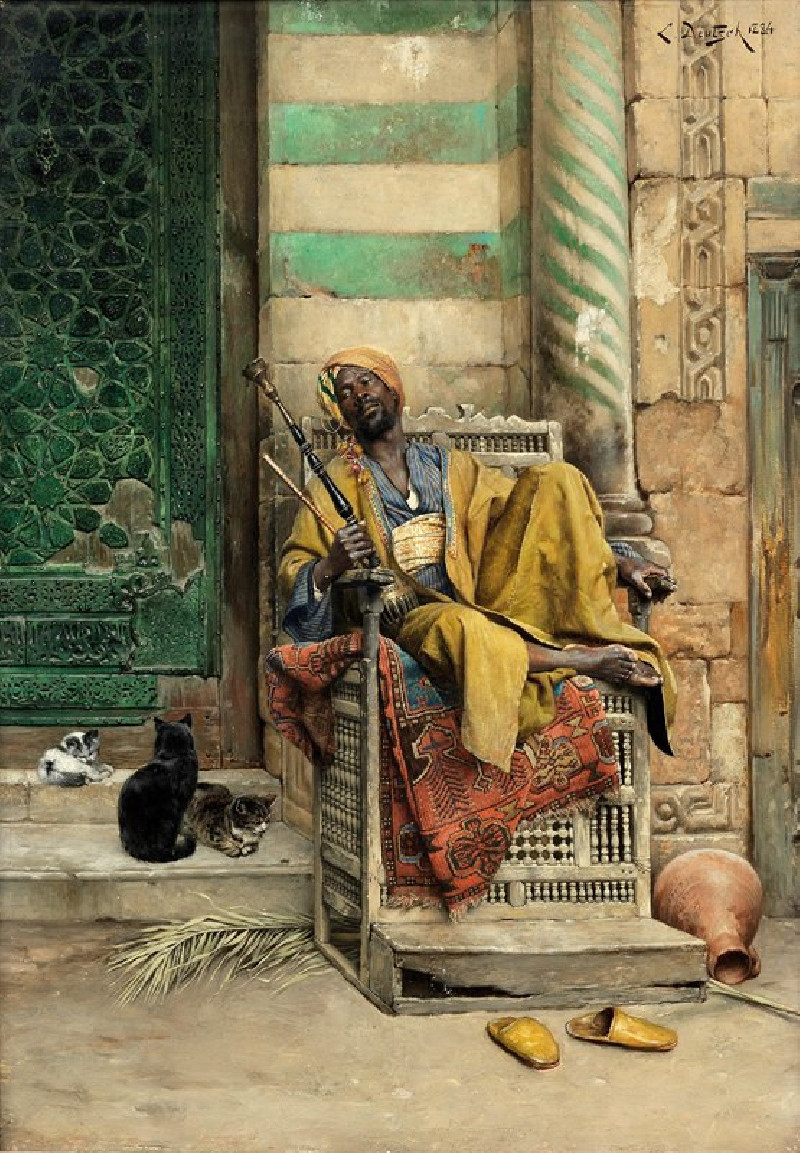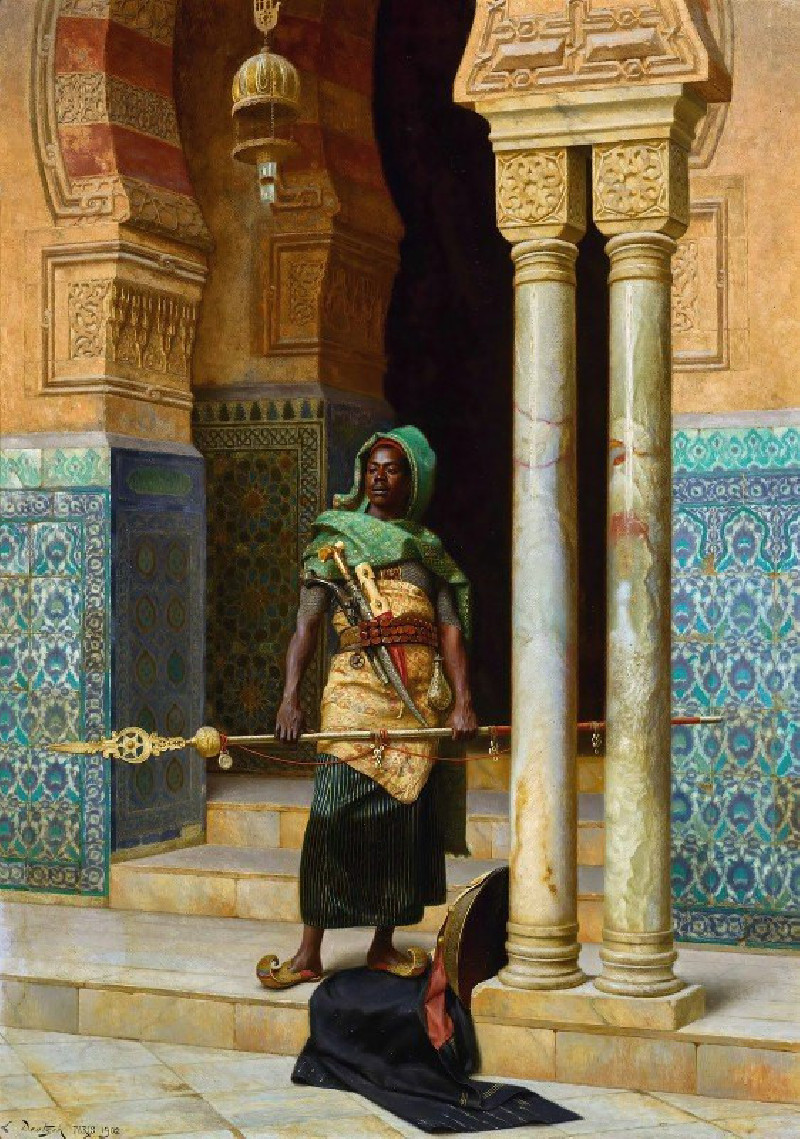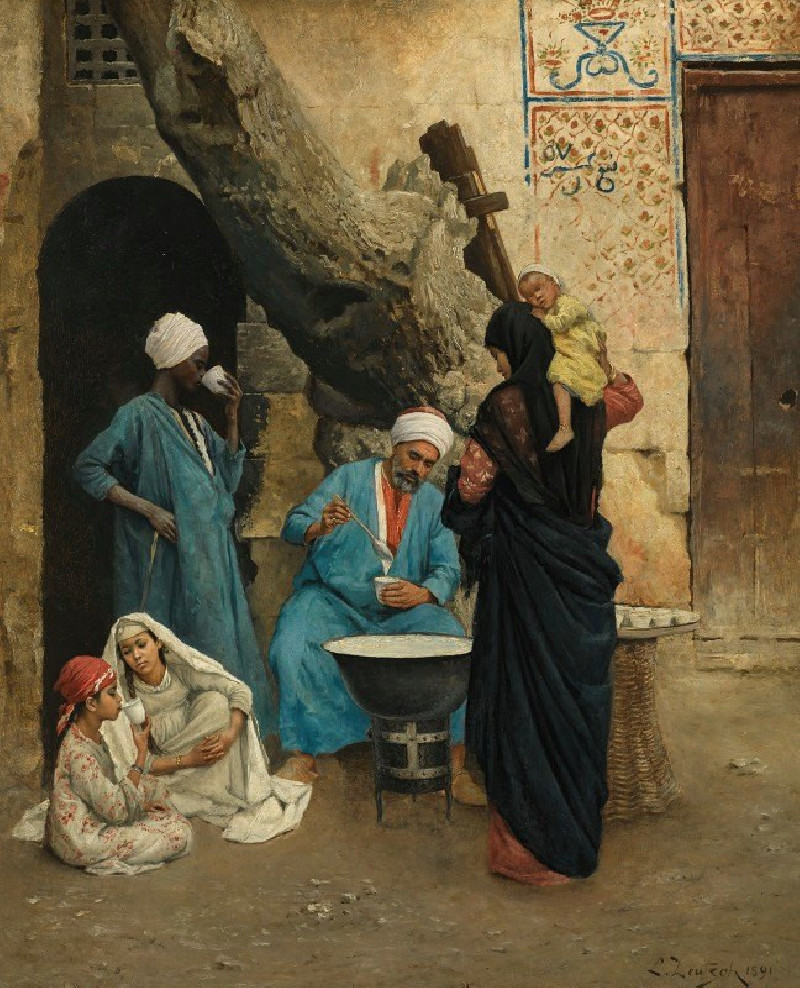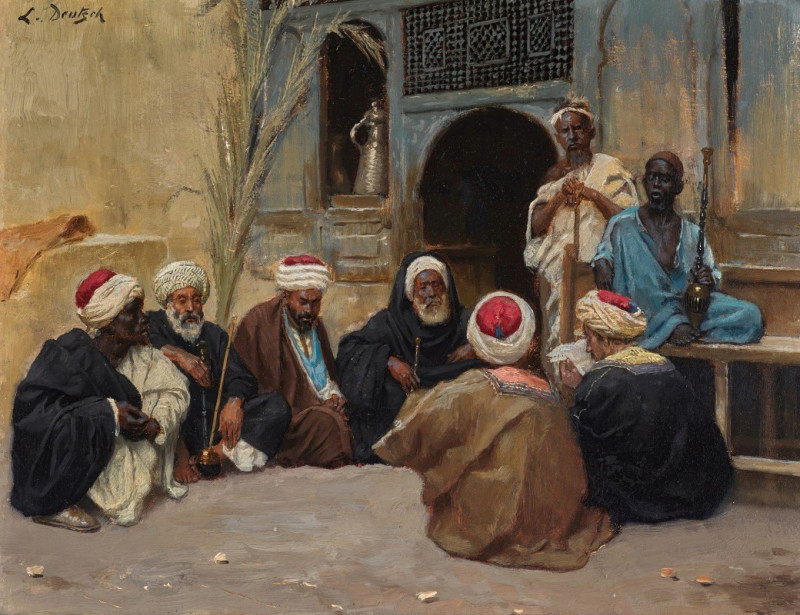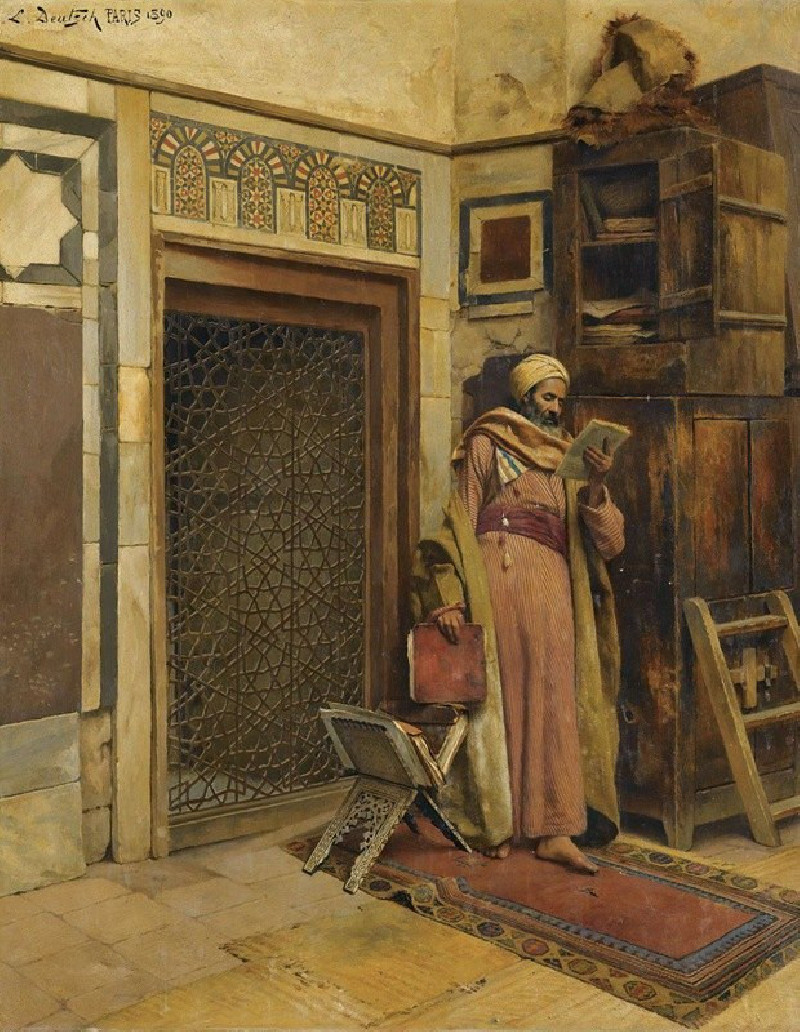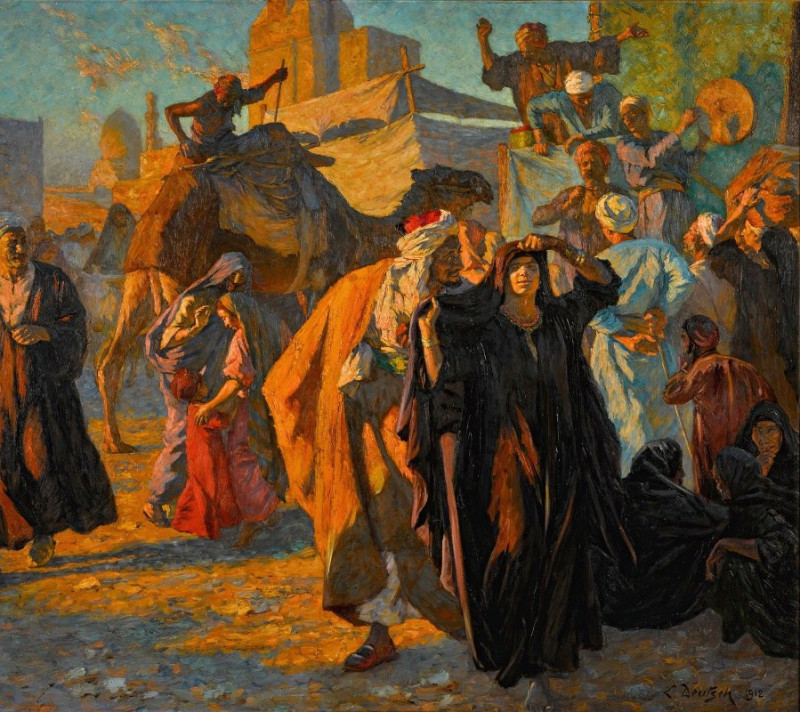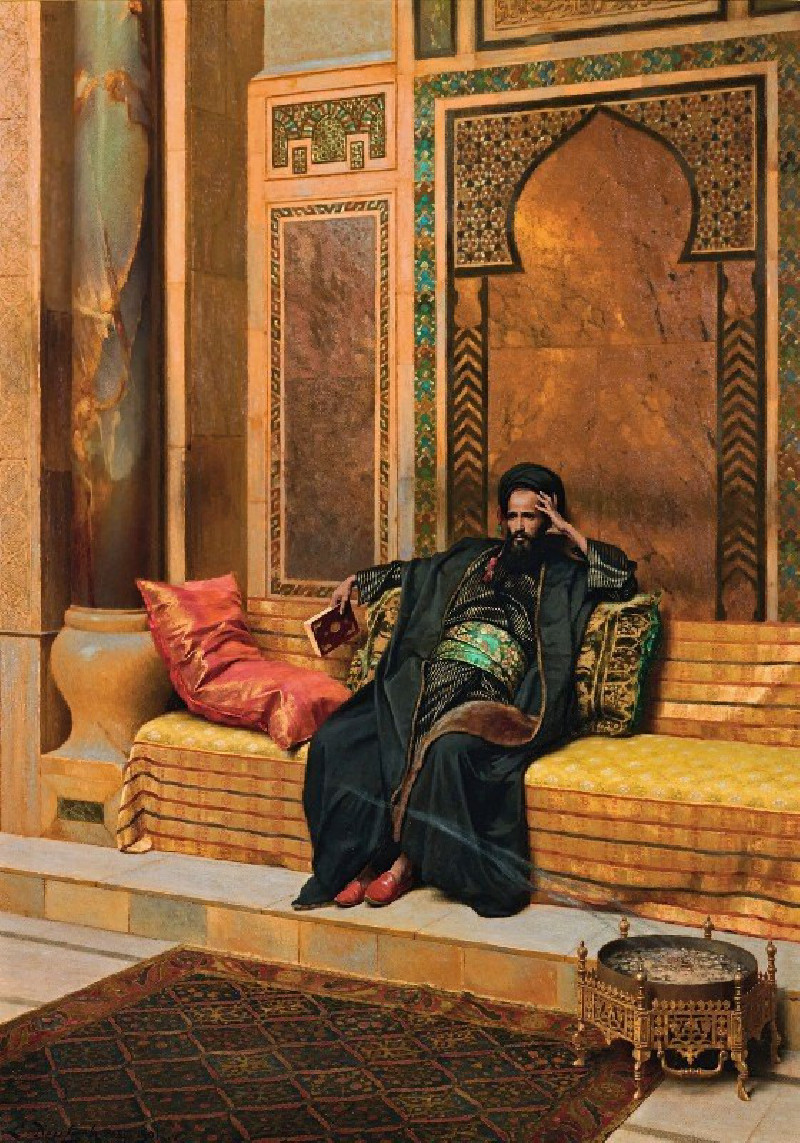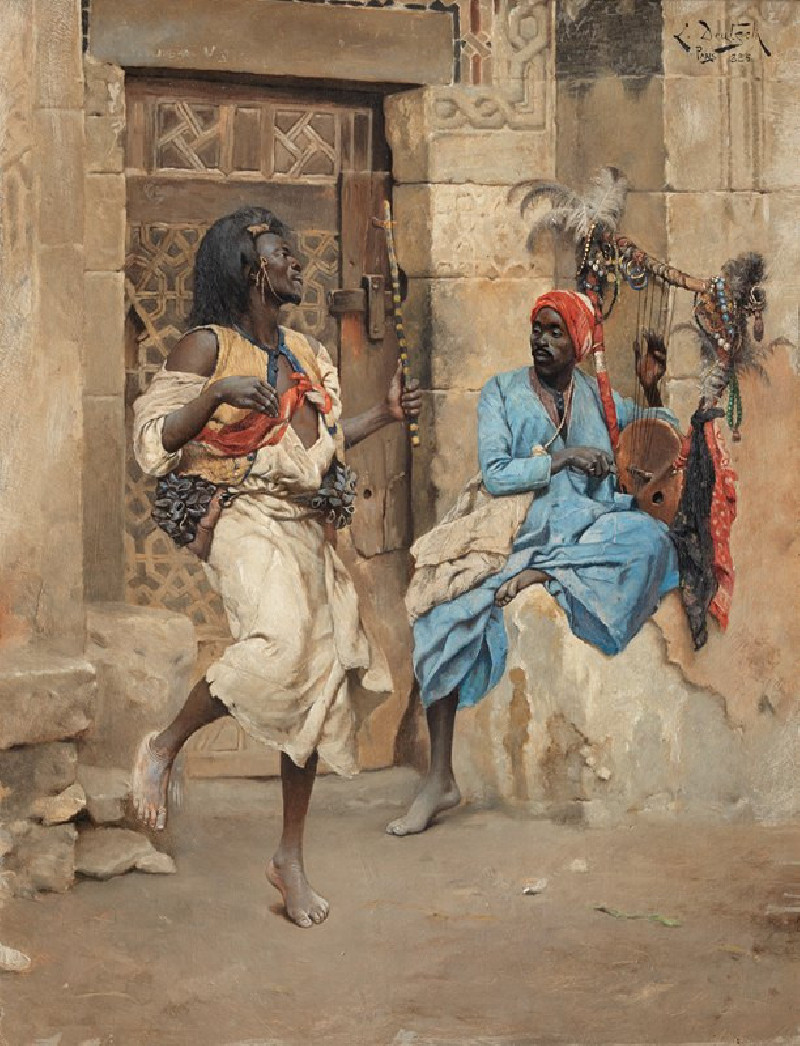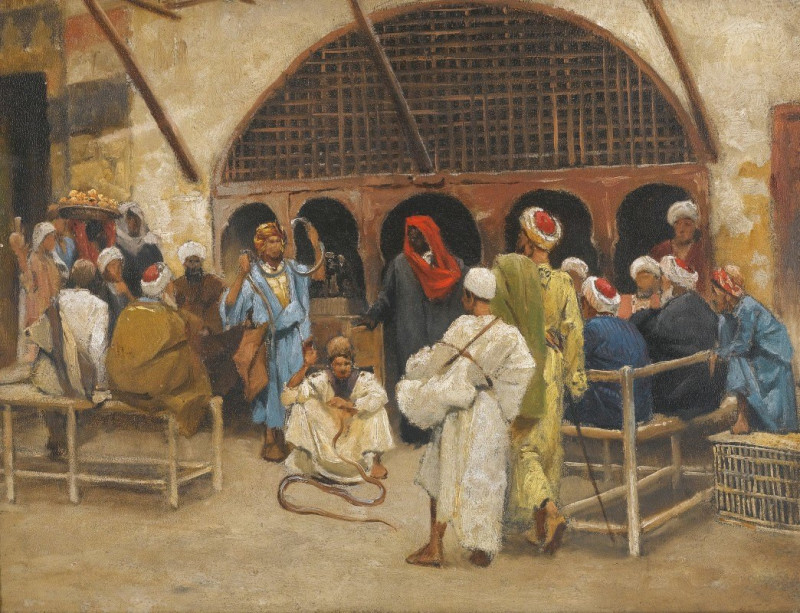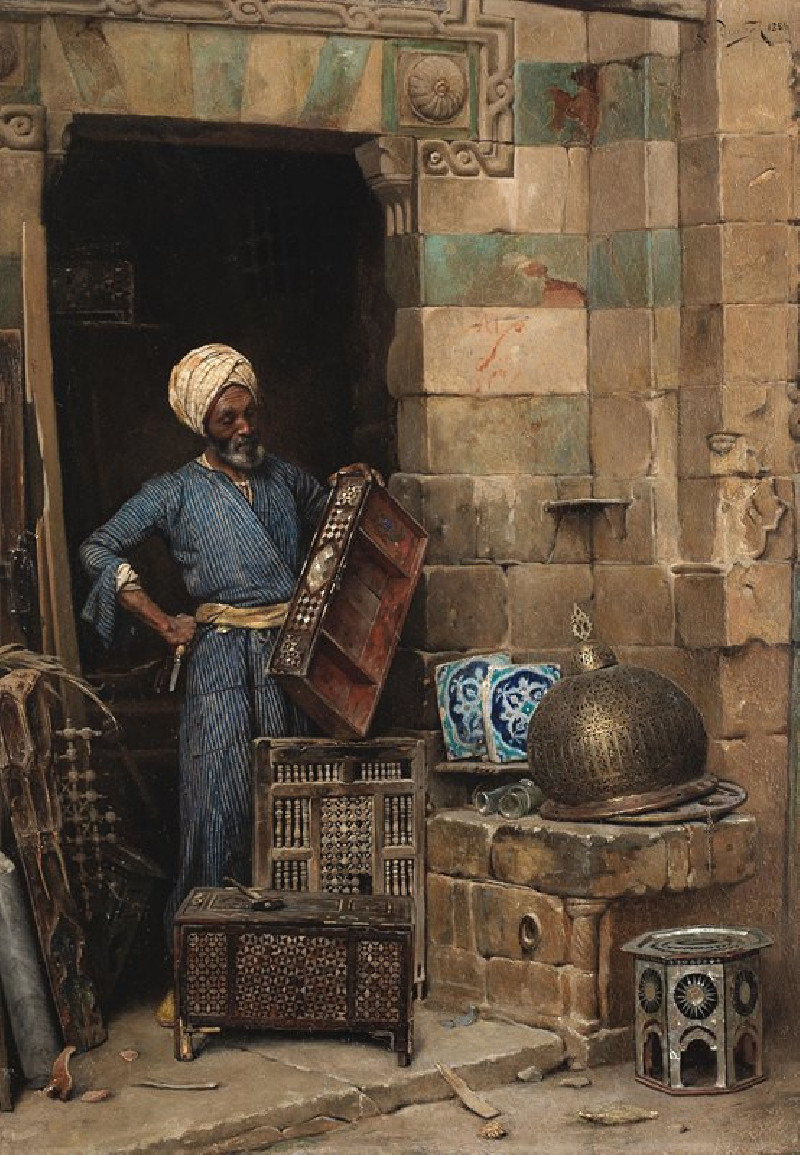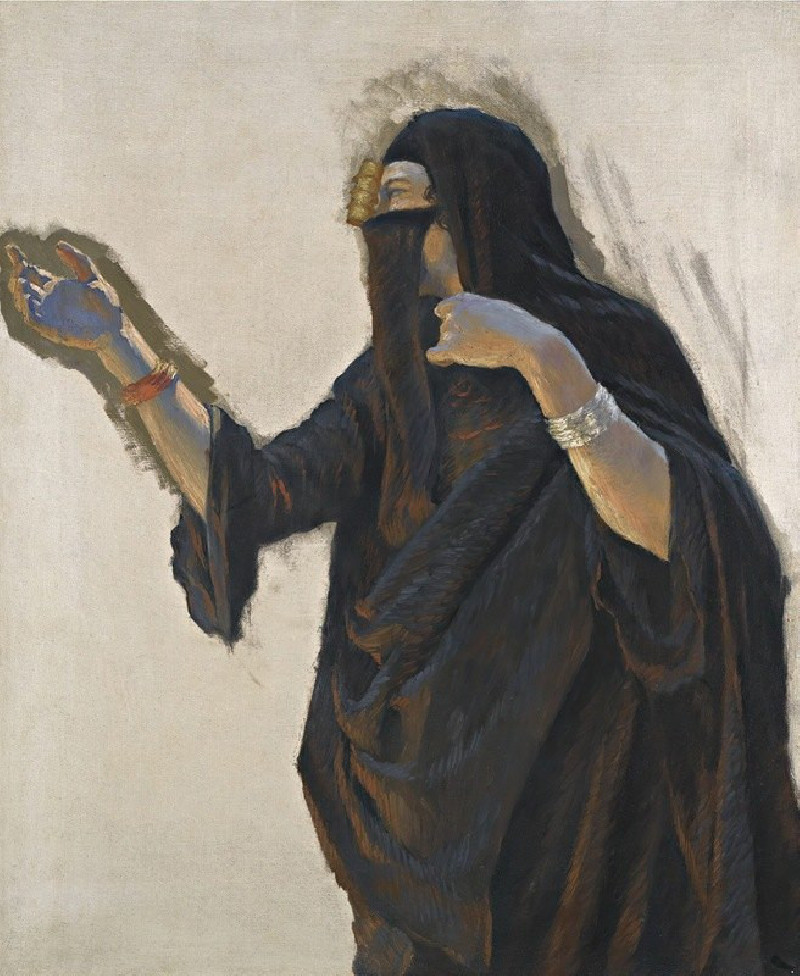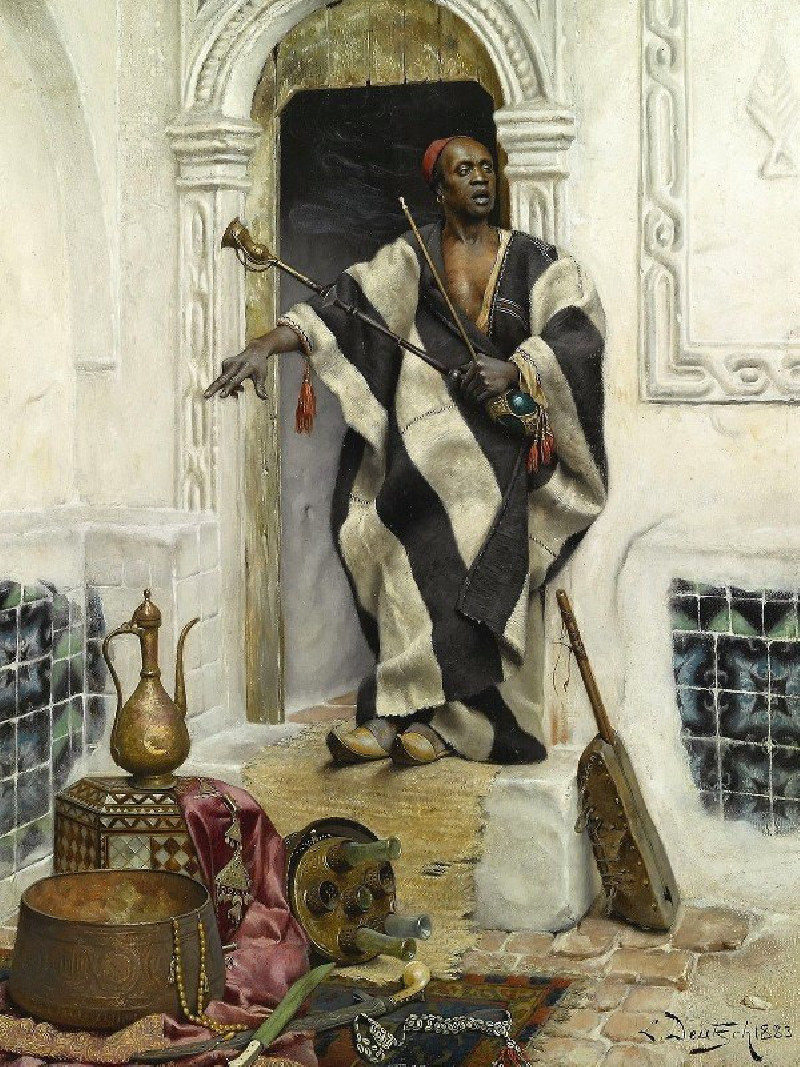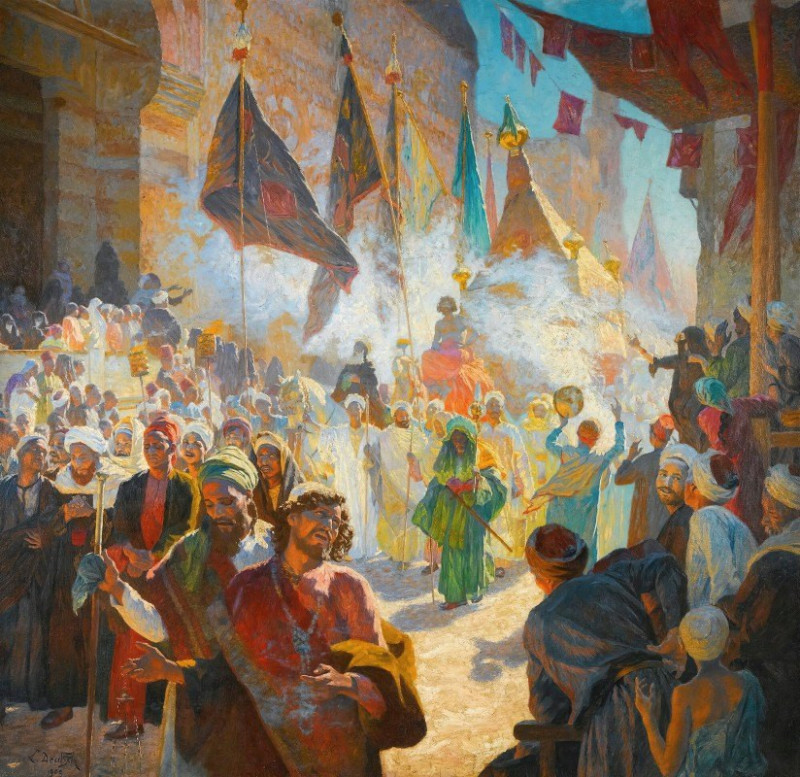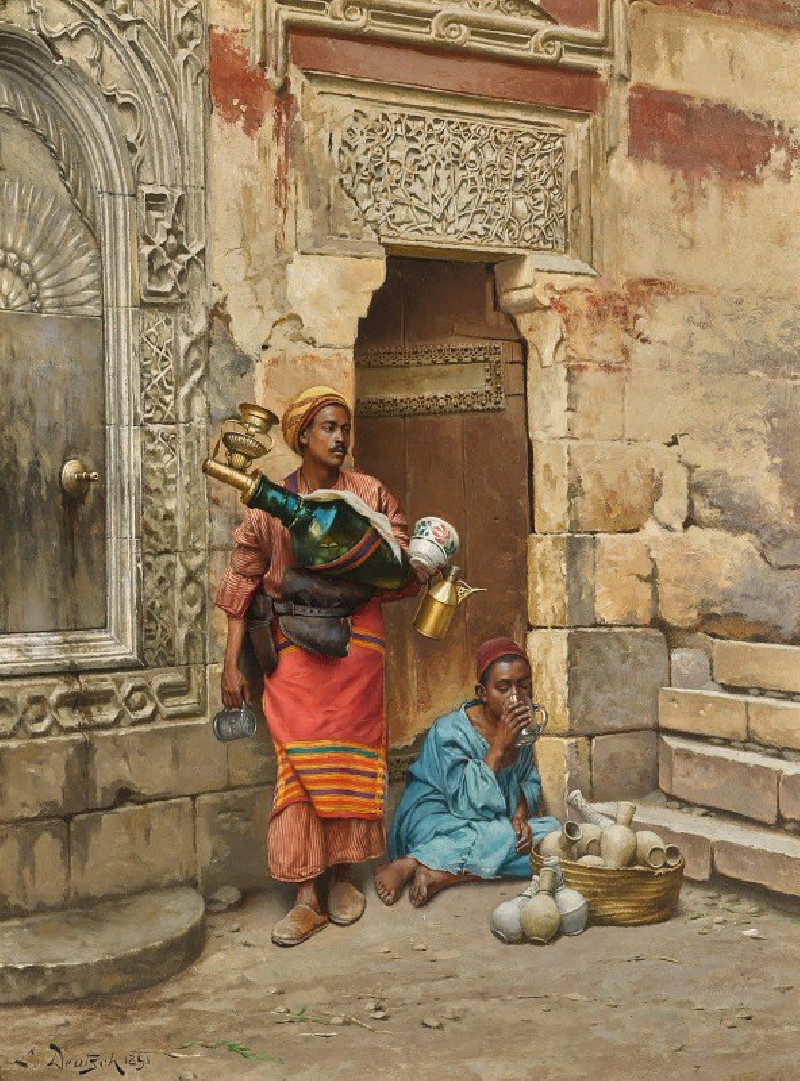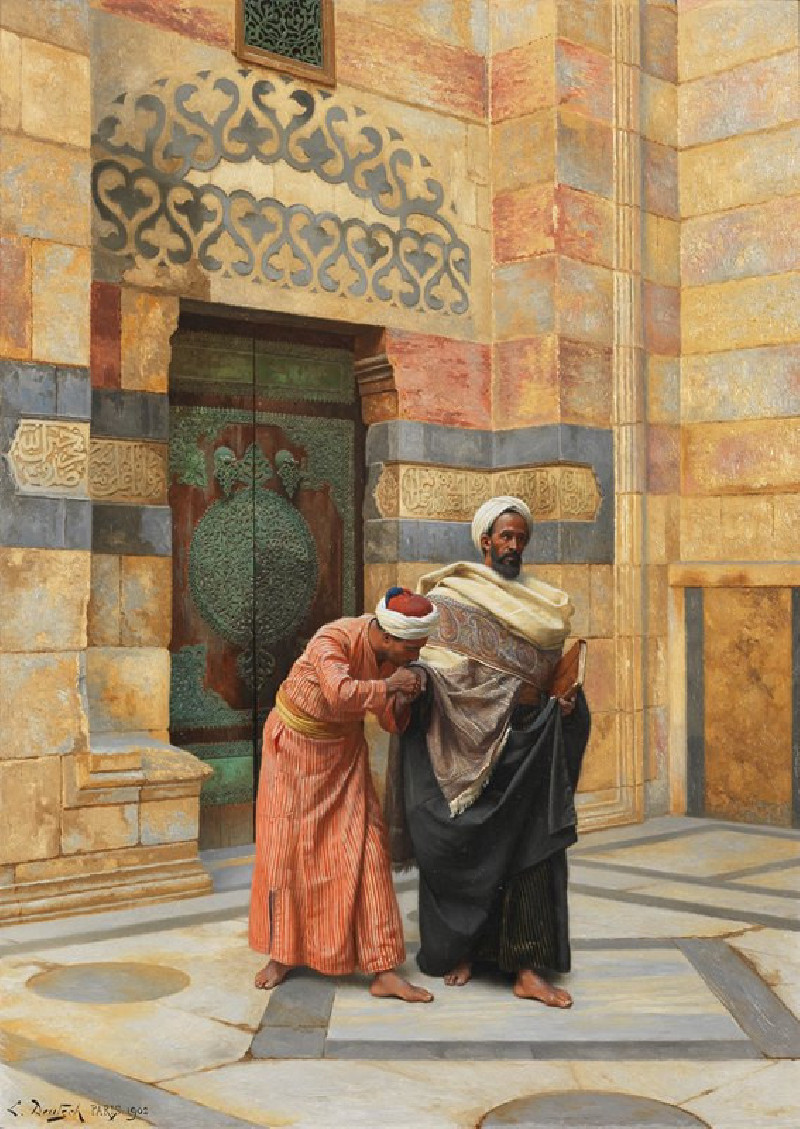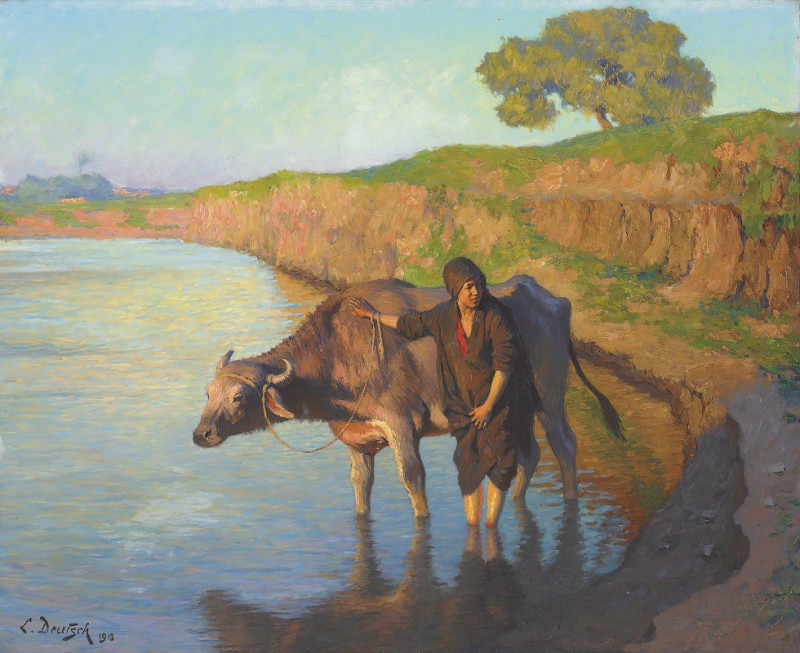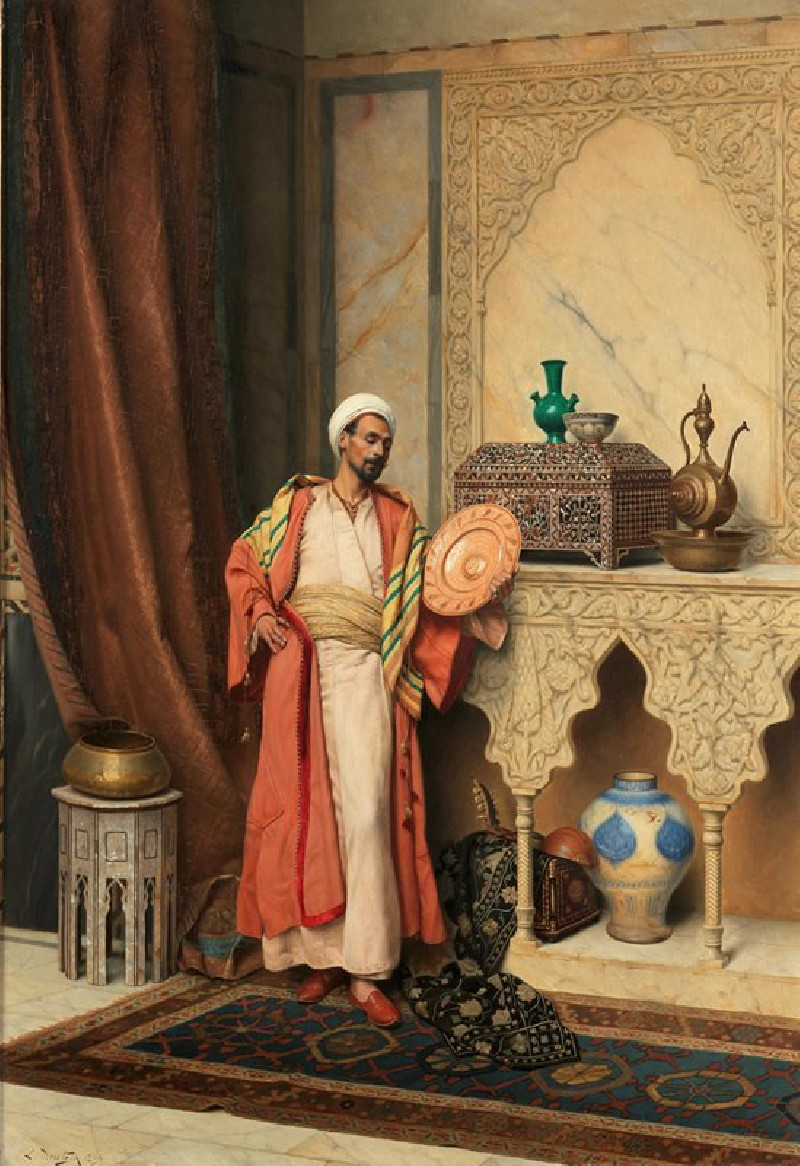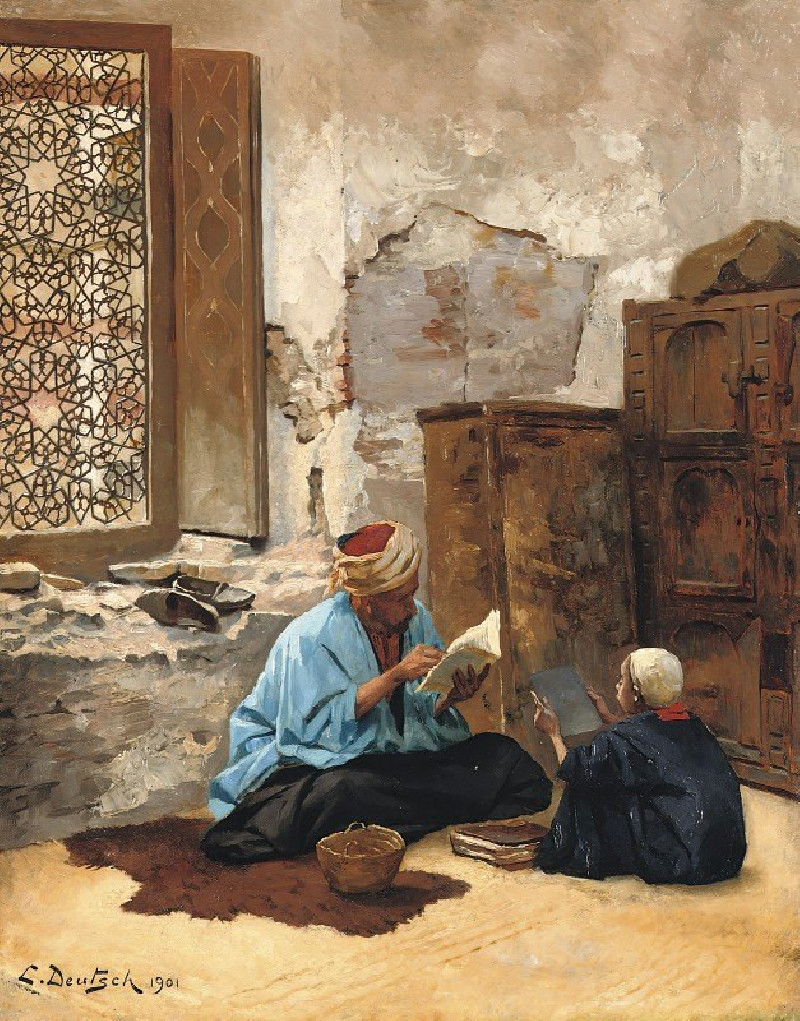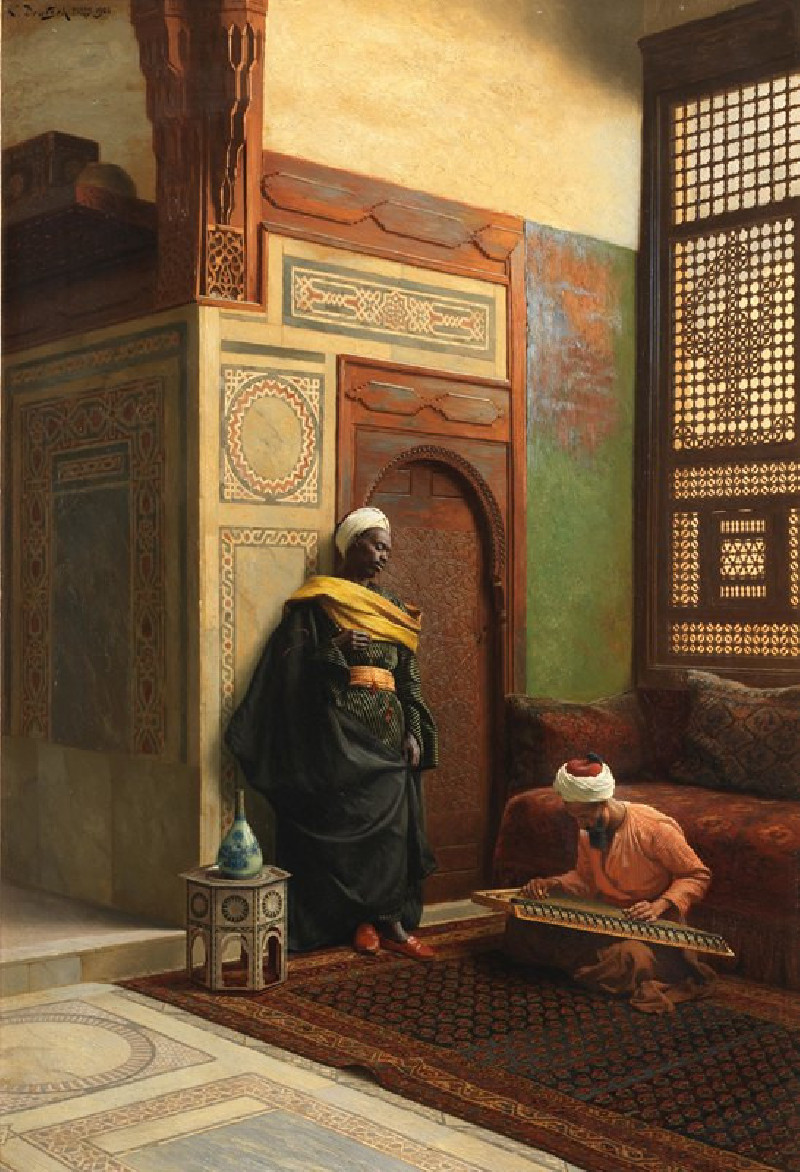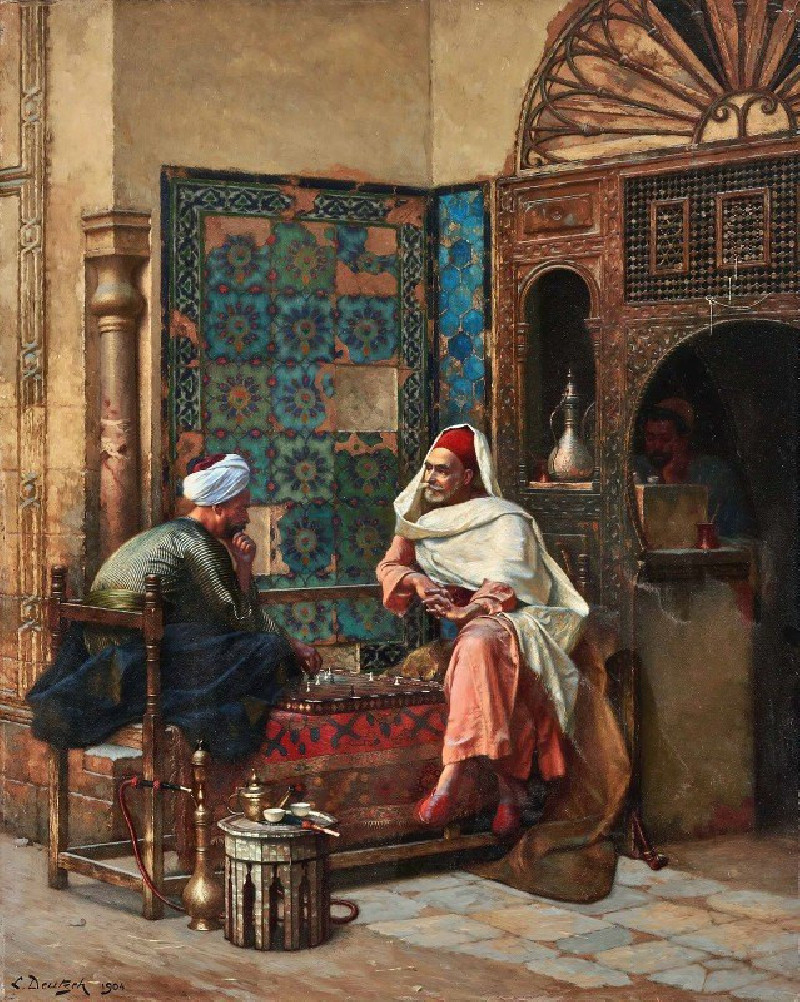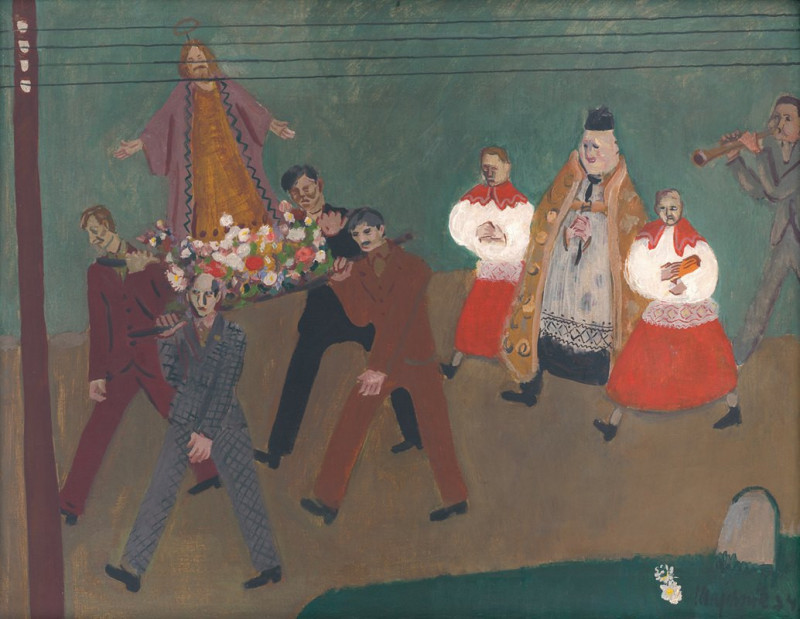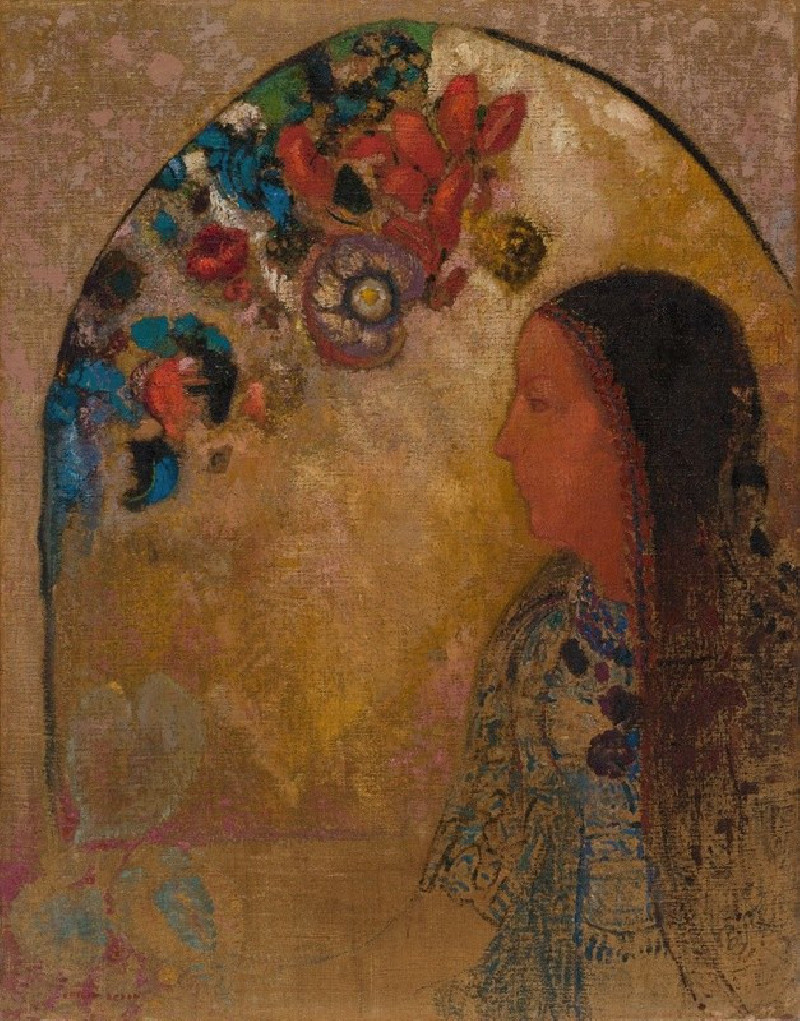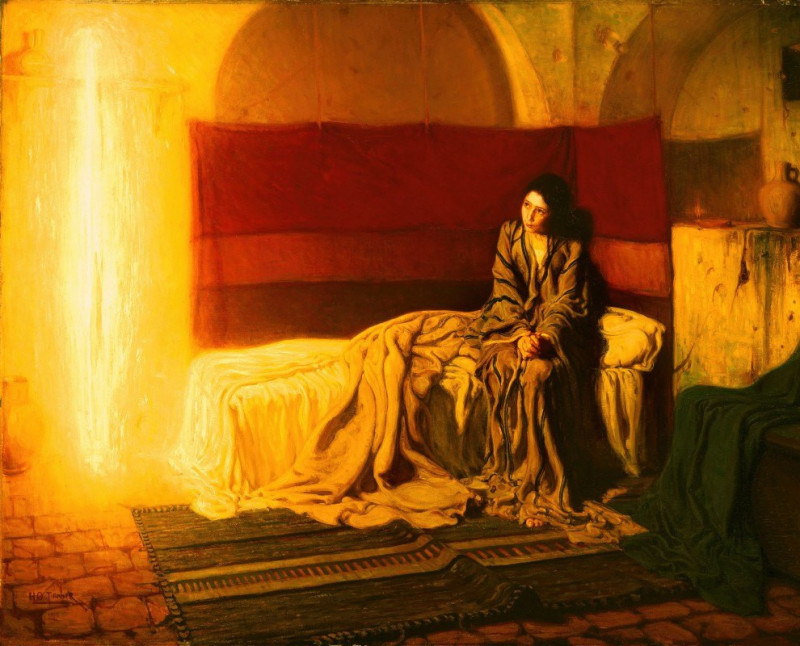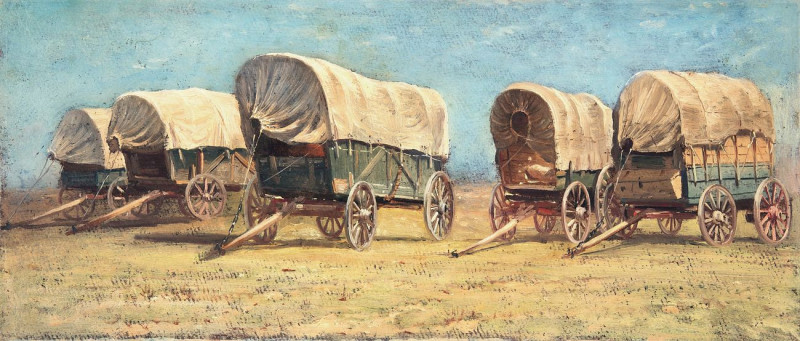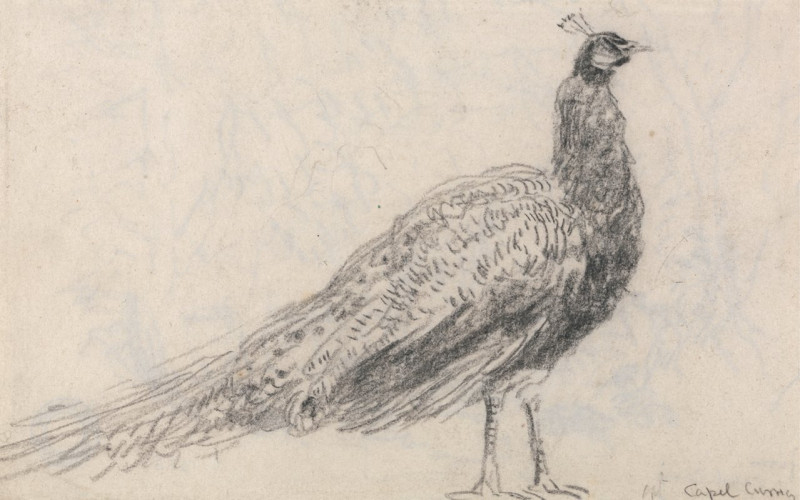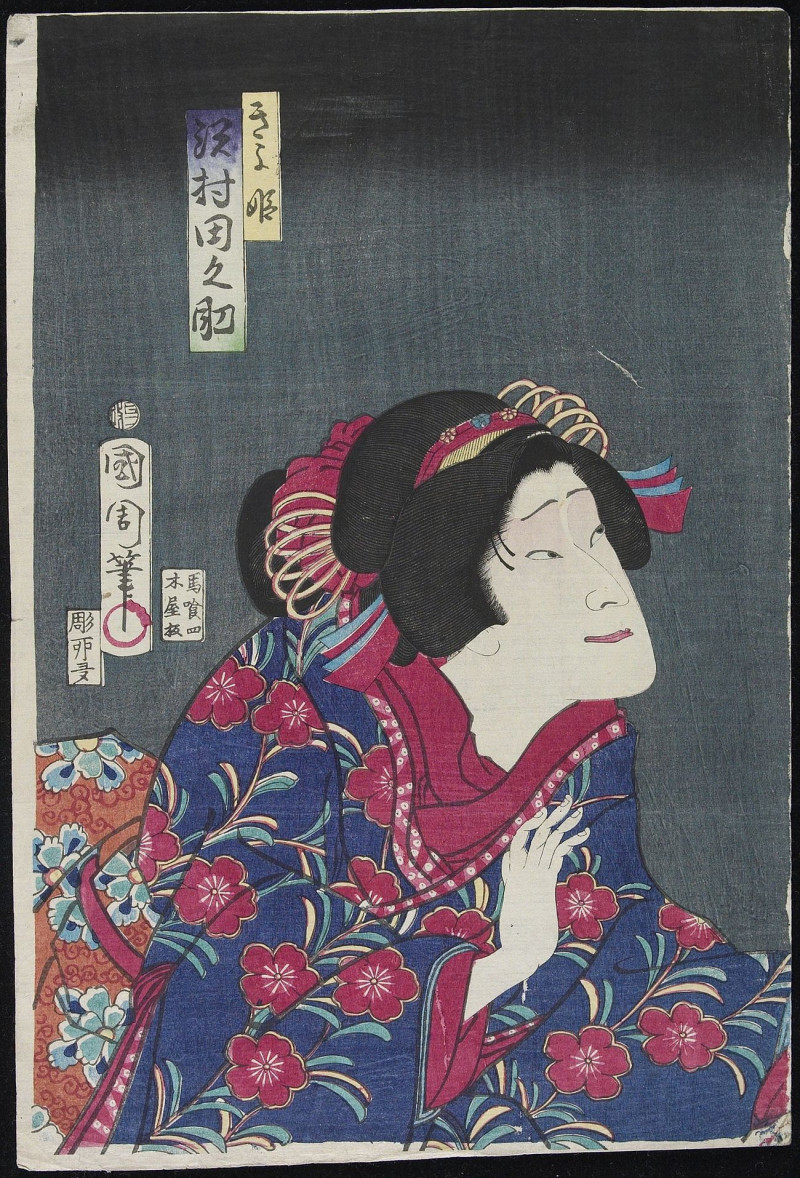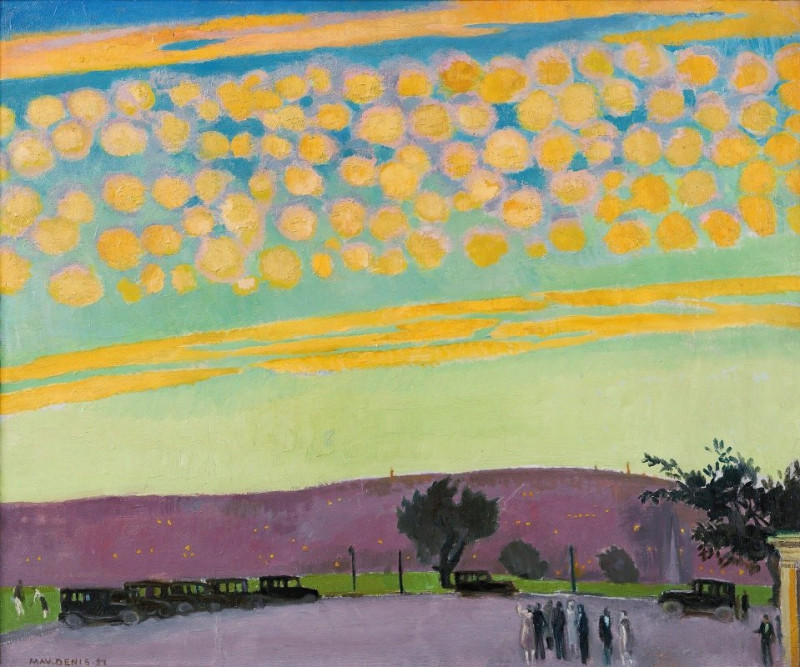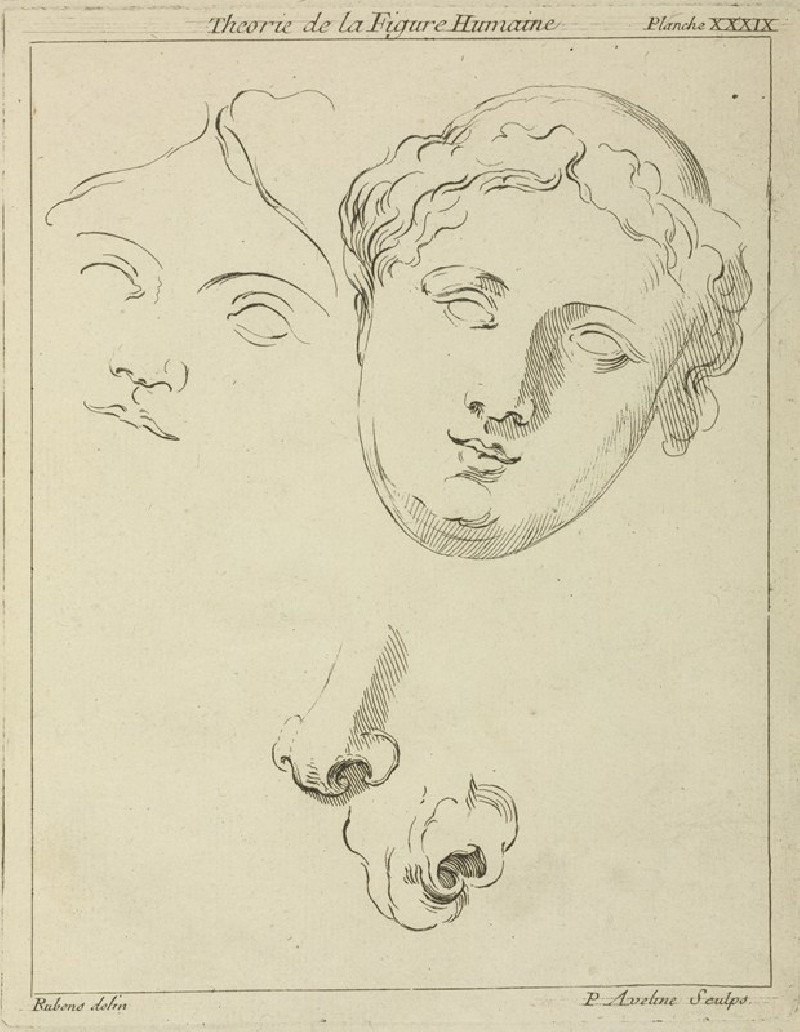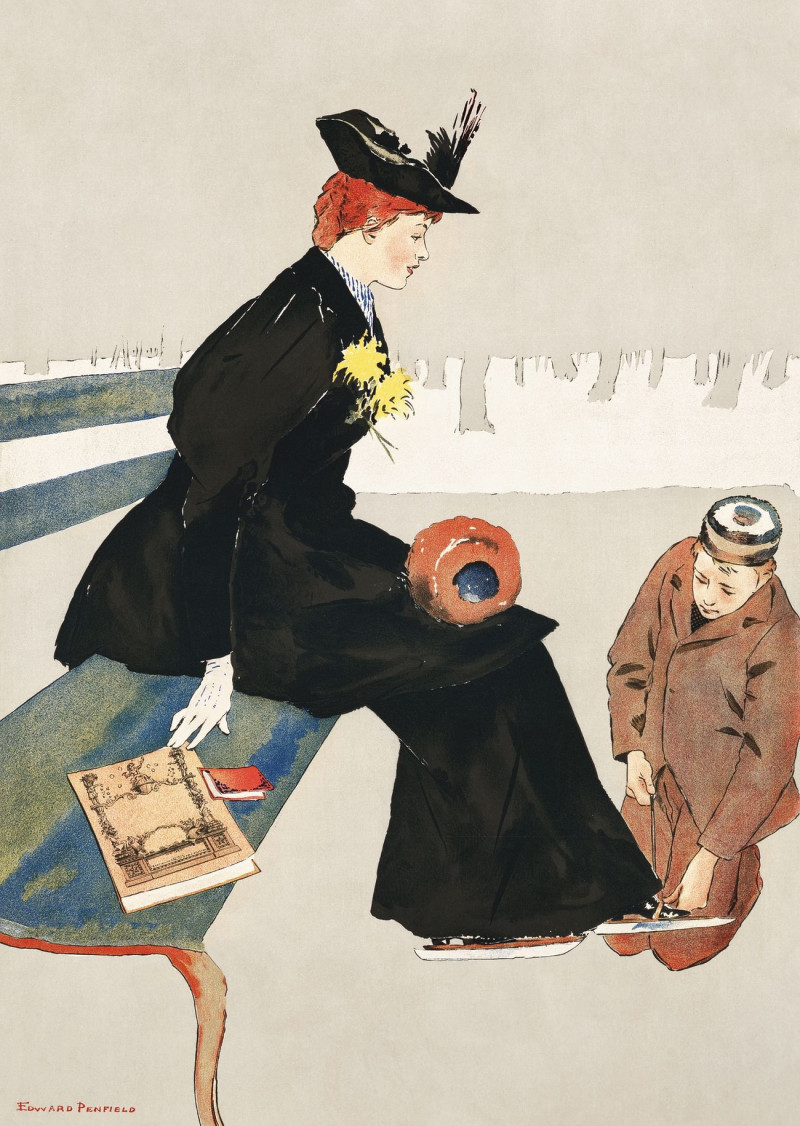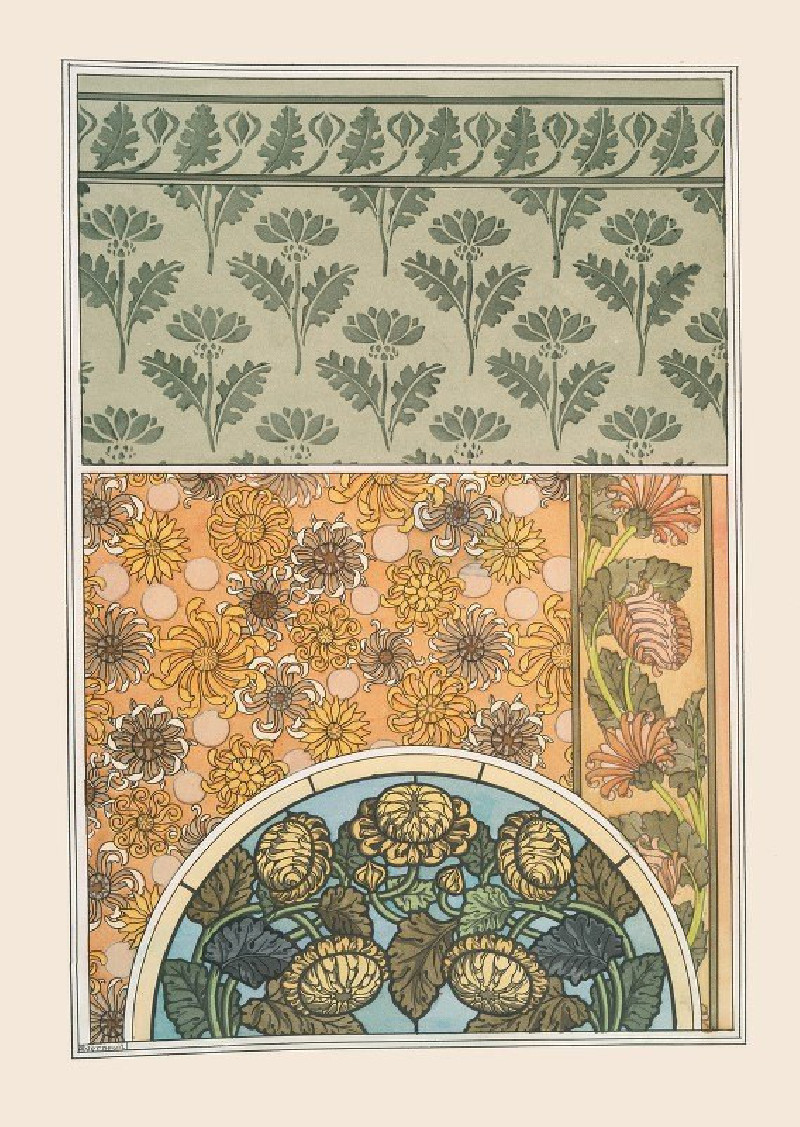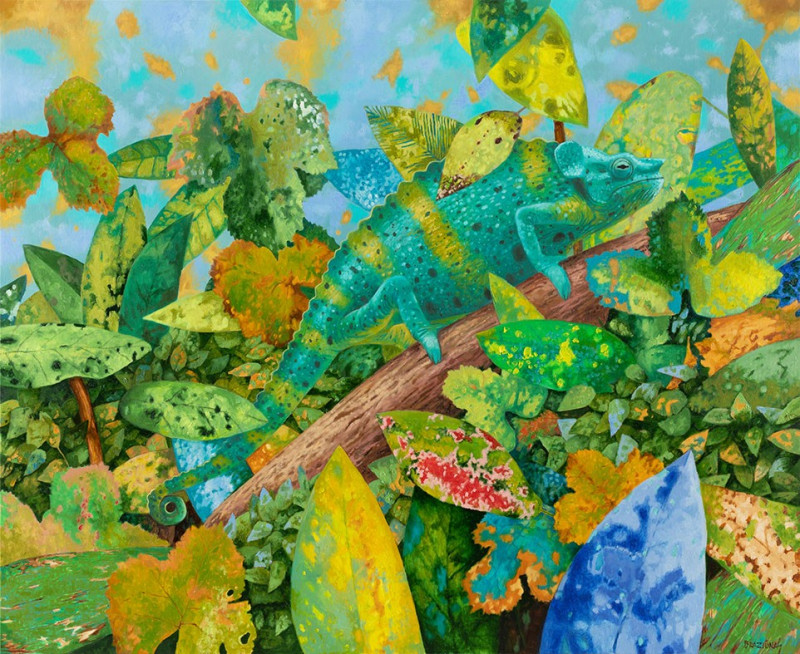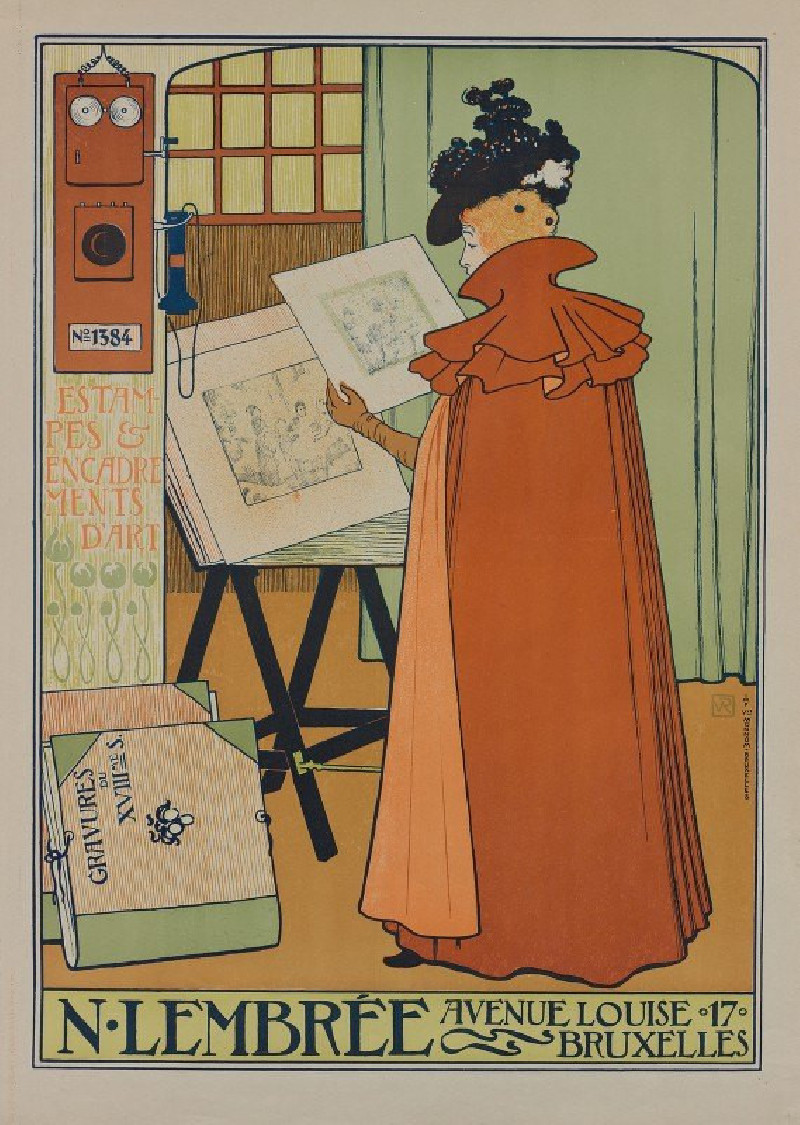The Goza Smoker (1884)
Technique: Giclée quality print
Recommended by our customers
More about this artwork
Step into the serene world of Ludwig Deutsch’s art with the evocative painting, "The Goza Smoker," crafted in 1884. This exquisite artwork transports viewers to a tranquil corner of the Middle East, capturing a moment of leisure frozen in time.At the heart of this painting is a dignified man, likely a local of the region, seated comfortably against a richly textured architectural backdrop. He is dressed in vibrant, flowing robes that suggest a status of some respect or authority, adorned with intricate patterns and a warm, golden hue that complements the overall earthy tones of the scene. The man leisurely enjoys a traditional hookah, also known as goza, indicating a moment of relaxation and reflection.The setting reveals detailed stonework, the texture of which is contrasted beautifully against the delicate, decorative metalwork of green-toned window grills. The placement of everyday objects—a clay pot and a pair of slippers—adds to the authenticity and lived-in feel of the scene. Adding further life to the setting are three cats, each captured in a posture of rest and alertness, contributing to the calm yet attentive atmosphere.What is truly remarkable about Deutsch’s work is the painstaking attention to detail, from the engravings on the stone to the embroidery on the fabrics and the shimmering reflections in the window. Every element is rendered with precision, reflecting Deutsch’s mastery over color and texture, and showcasing his dedication to portraying the richness of Middle Eastern culture.
Delivery
Returns
Ludwig Deutsch was an Austrian painter who settled in Paris and became a noted Orientalist artist.
Details of Ludwig Deutsch's life are obscure. He was born in Vienna in 1855 into a well-established Jewish family. His father Ignaz Deutsch was a financier at the Austrian court. He studied at the Vienna Academy of Fine Arts 1872–1875, then, in 1878, moved to Paris where he became strongly associated with Orientalism.

